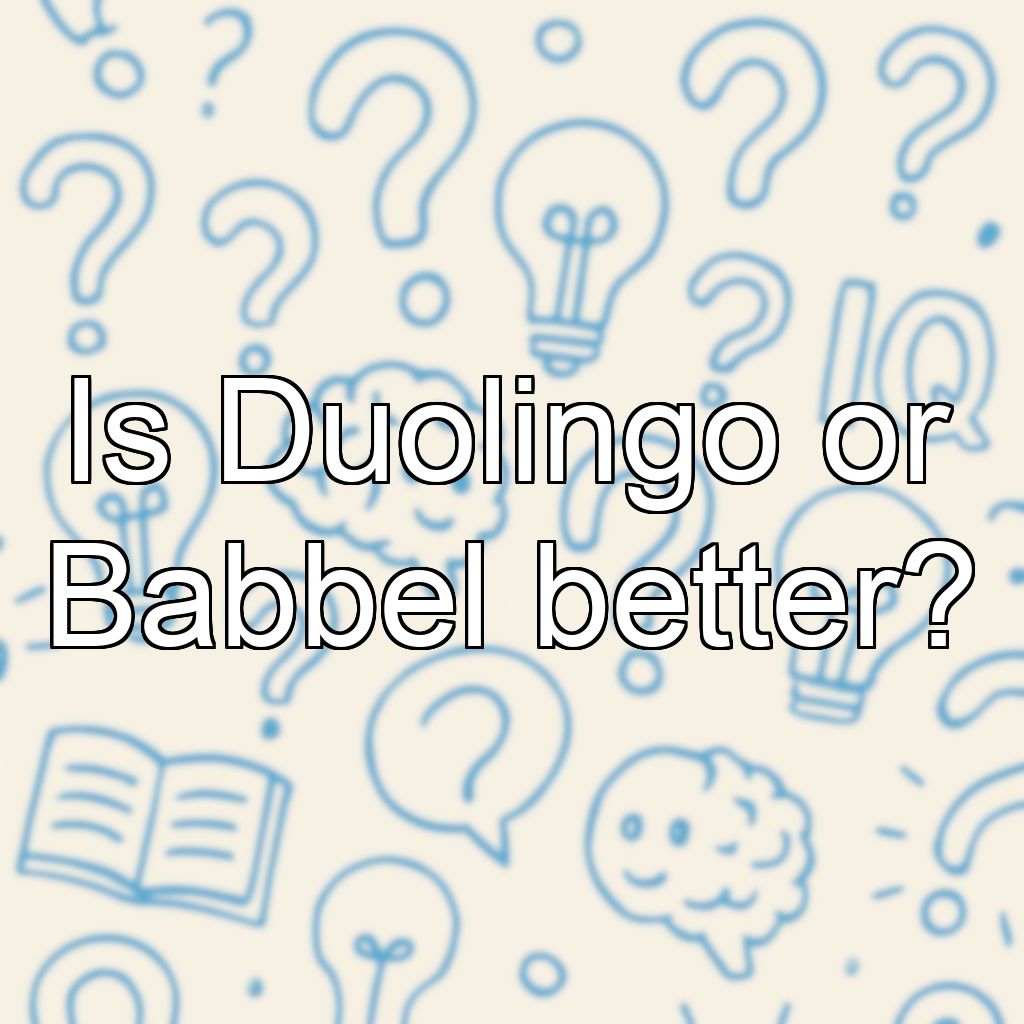Is Duolingo or Babbel better?

Duolingo vs. Babbel: Which is Better?
Both Duolingo and Babbel are popular language learning platforms, but they cater to different types of learners and have unique features. Here’s a comparison to help you decide which might be better for you:
Duolingo
- Free and Accessible: Duolingo offers a robust free version, making it accessible to a wide audience.
- Gamified Learning: Lessons feel like games, with points, streaks, and rewards to keep users motivated.
- Wide Language Selection: Offers 40+ languages, including some less commonly taught ones.
- Short, Bite-Sized Lessons: Great for learning in short bursts and for daily practice.
- Community Features: Includes leaderboards, forums, and clubs for social learning.
Babbel
- Paid, Structured Courses: Babbel requires a subscription, but provides more in-depth, structured lessons.
- Focus on Conversation: Lessons are designed by language experts with a focus on real-life conversation skills.
- Cultural Context: Content includes cultural notes and tips to help learners understand the context of the language.
- Fewer Languages: Offers 14 languages, focusing on the most popular choices.
- Progress Tracking: Personalized review sessions and clear learning paths.
Which Is Better?
- For Beginners & Casual Learners: Duolingo is a great starting point, especially if you want a free, fun, and easy way to start learning a language.
- For Serious Learners: Babbel is better for those who are willing to invest in more structured, practical lessons and want to develop conversational skills quickly.
- Language Selection: If you want to learn a less common language, Duolingo is more likely to offer it.
Conclusion: If you are looking for a free, game-like experience and want to dabble in multiple languages, Duolingo is ideal. If you are willing to pay for a more comprehensive, conversation-focused approach, Babbel is a better choice. Many learners use both to complement each other.